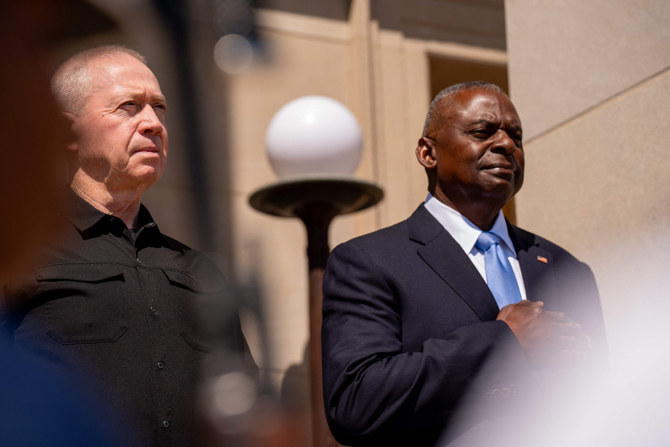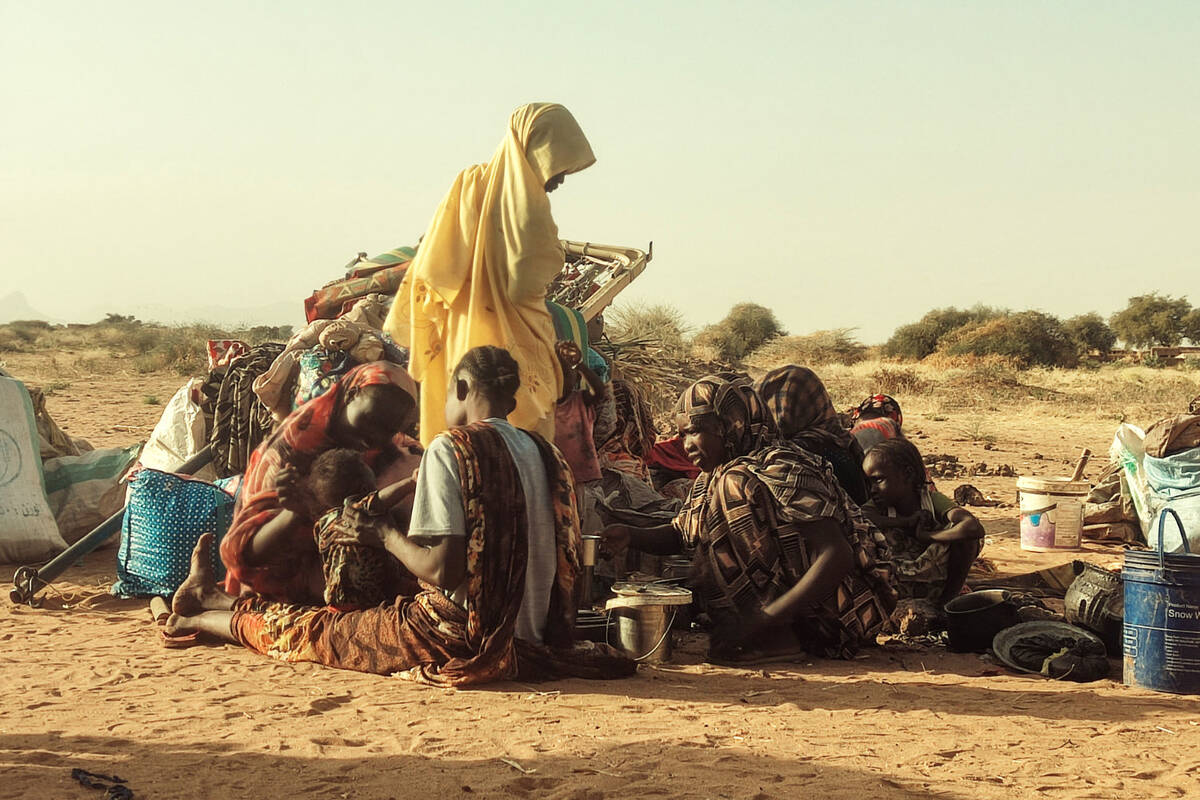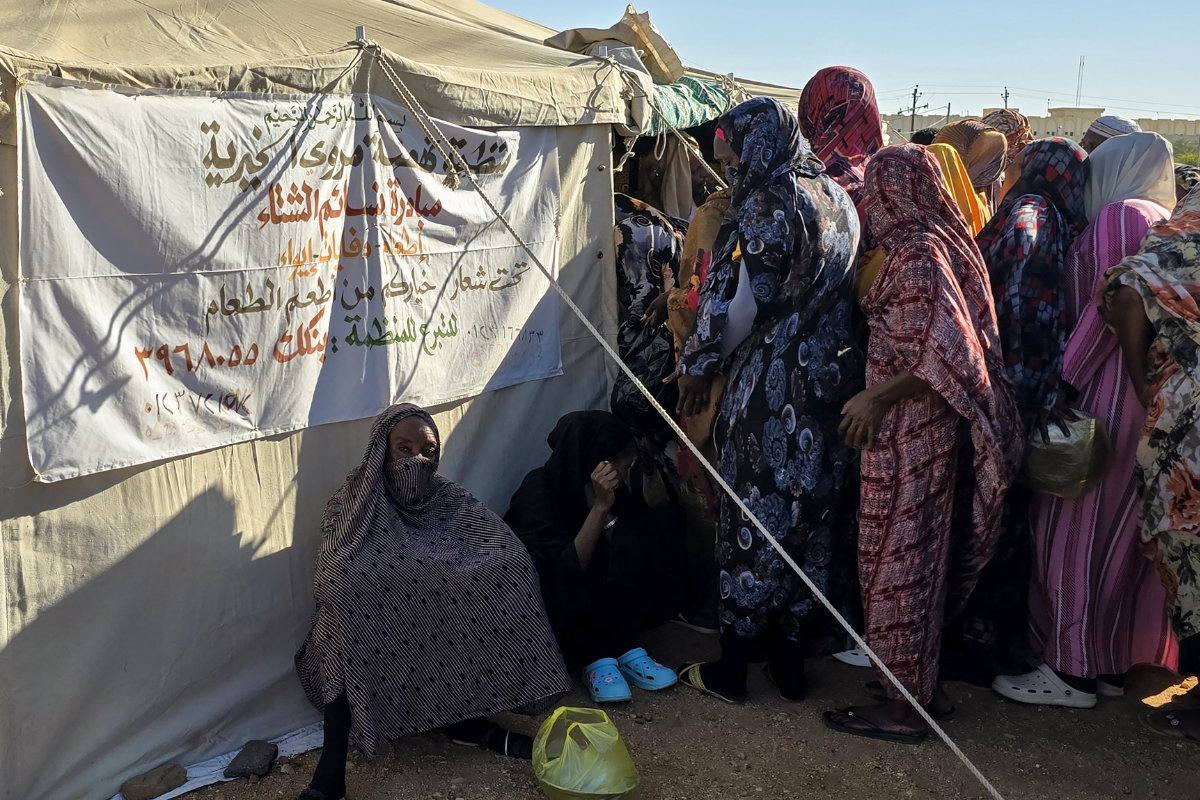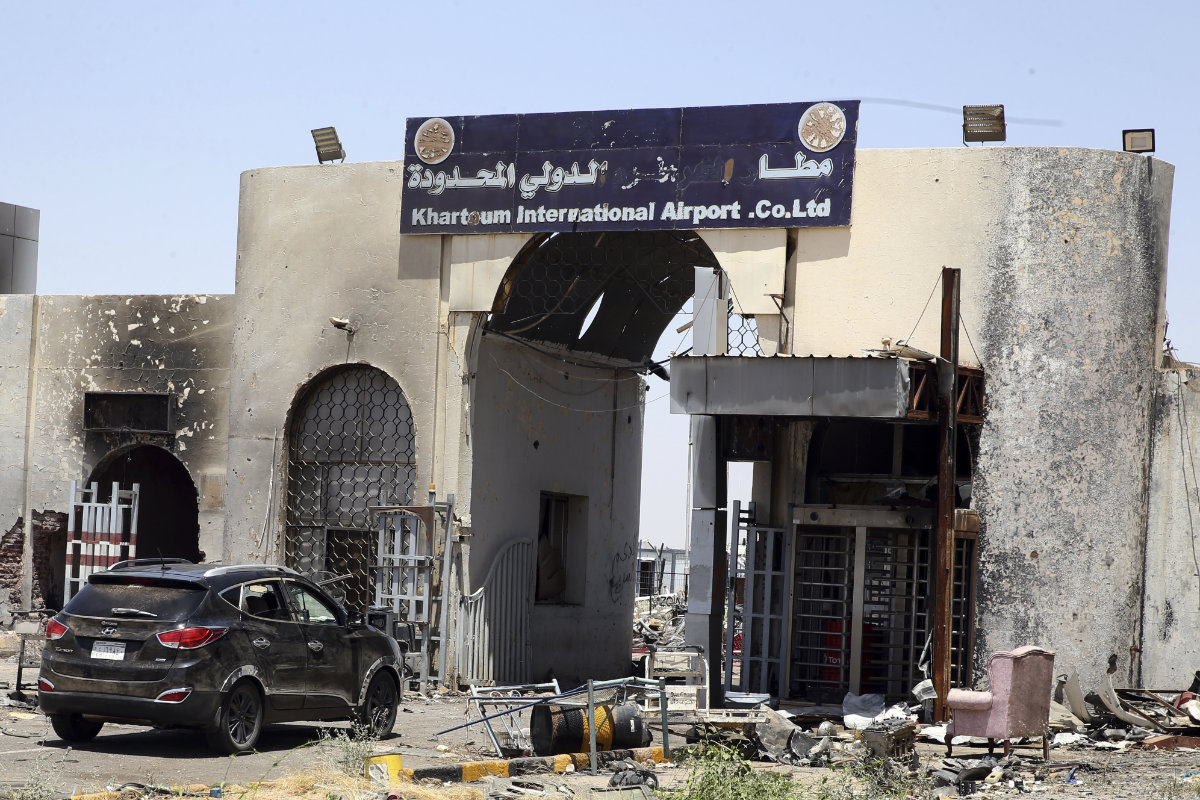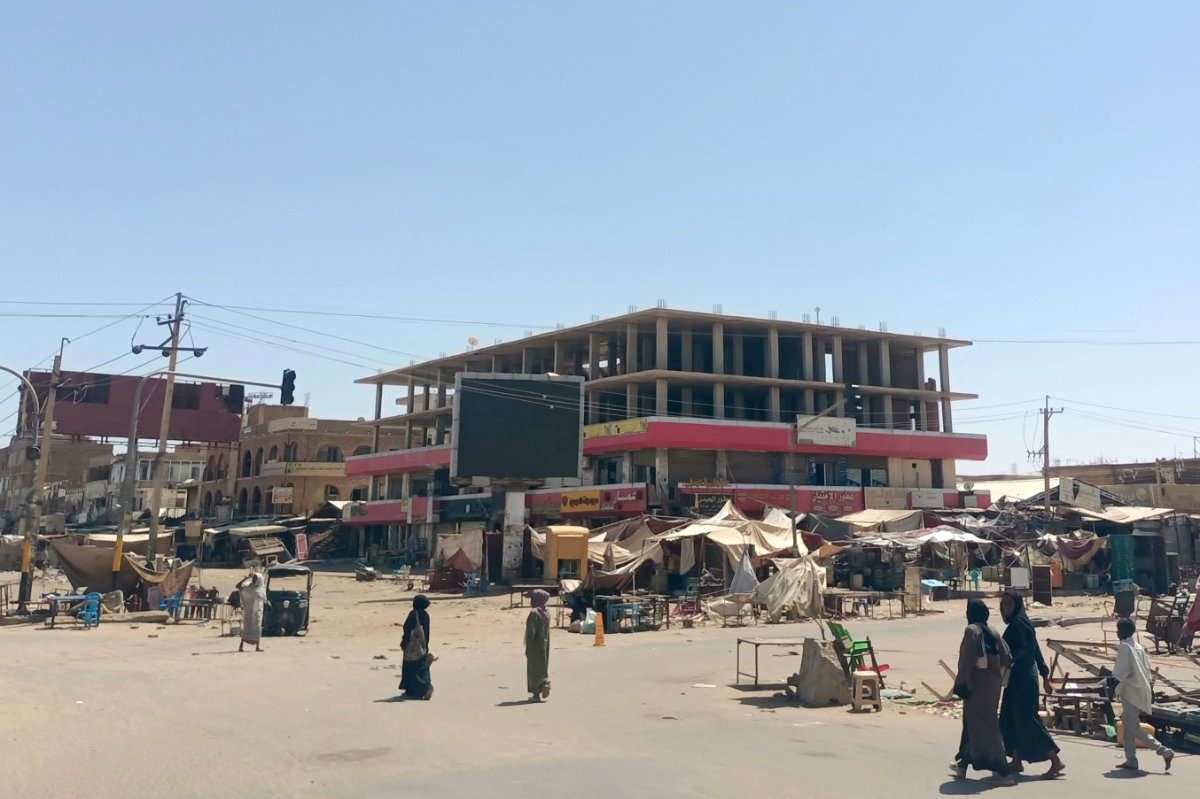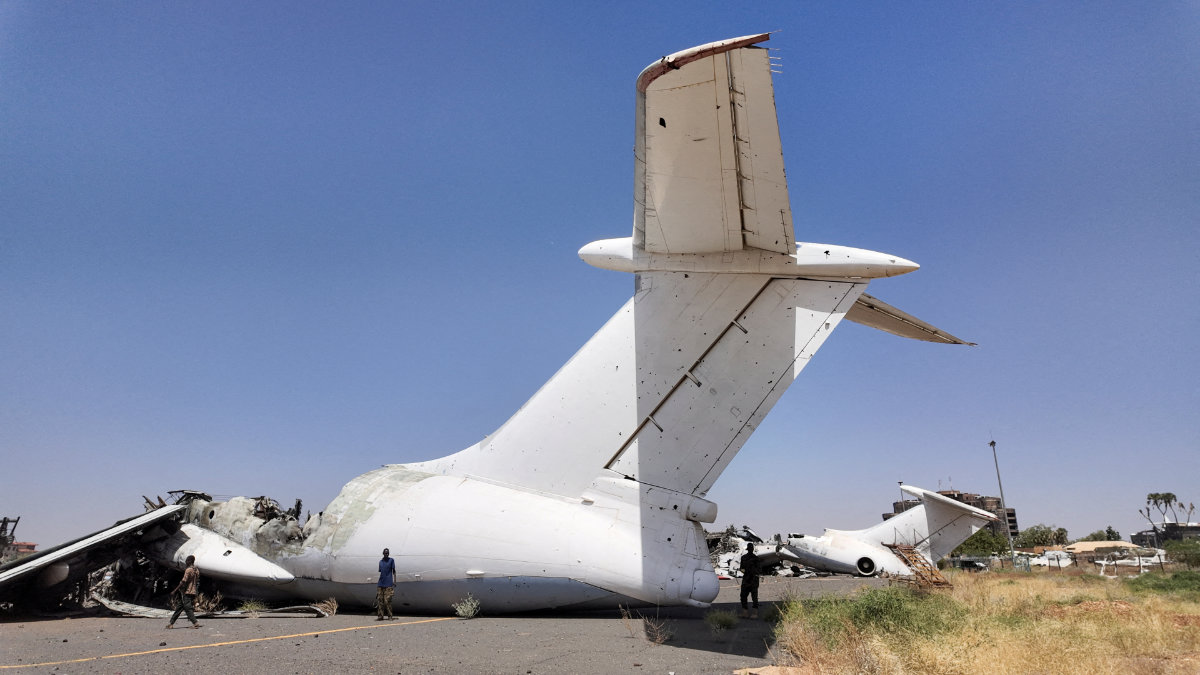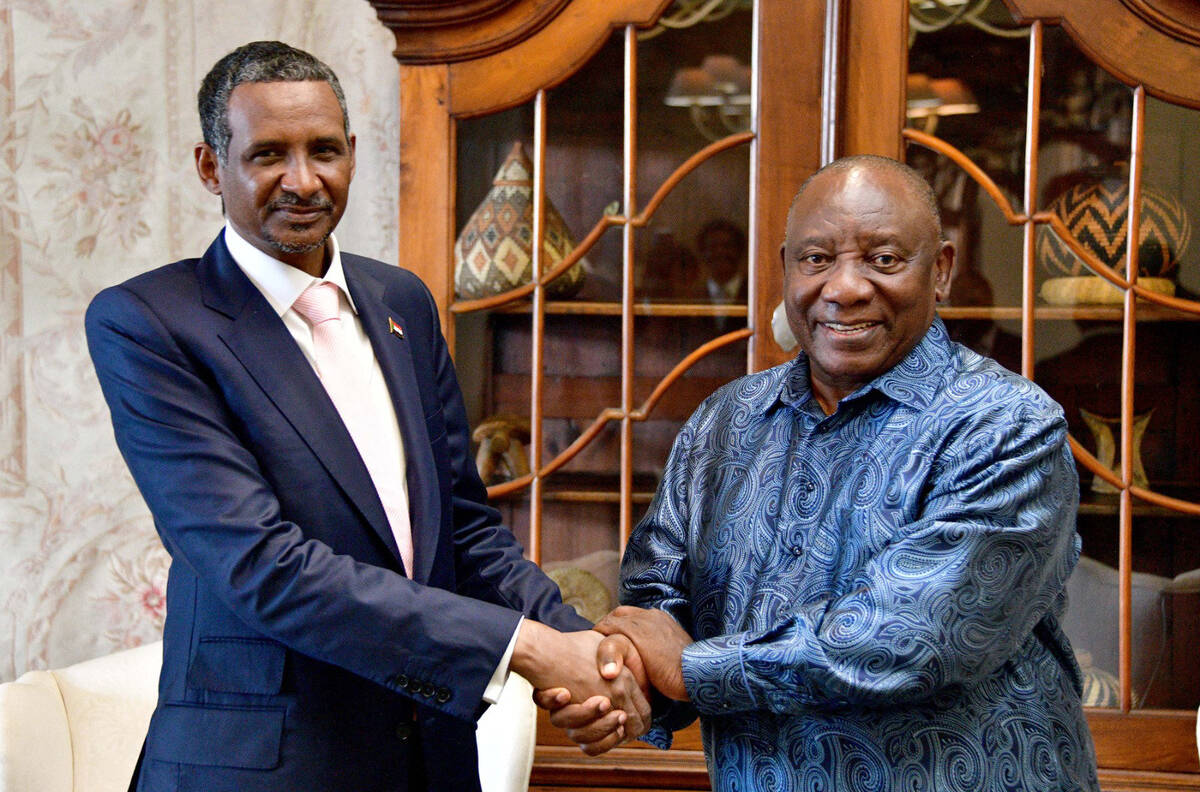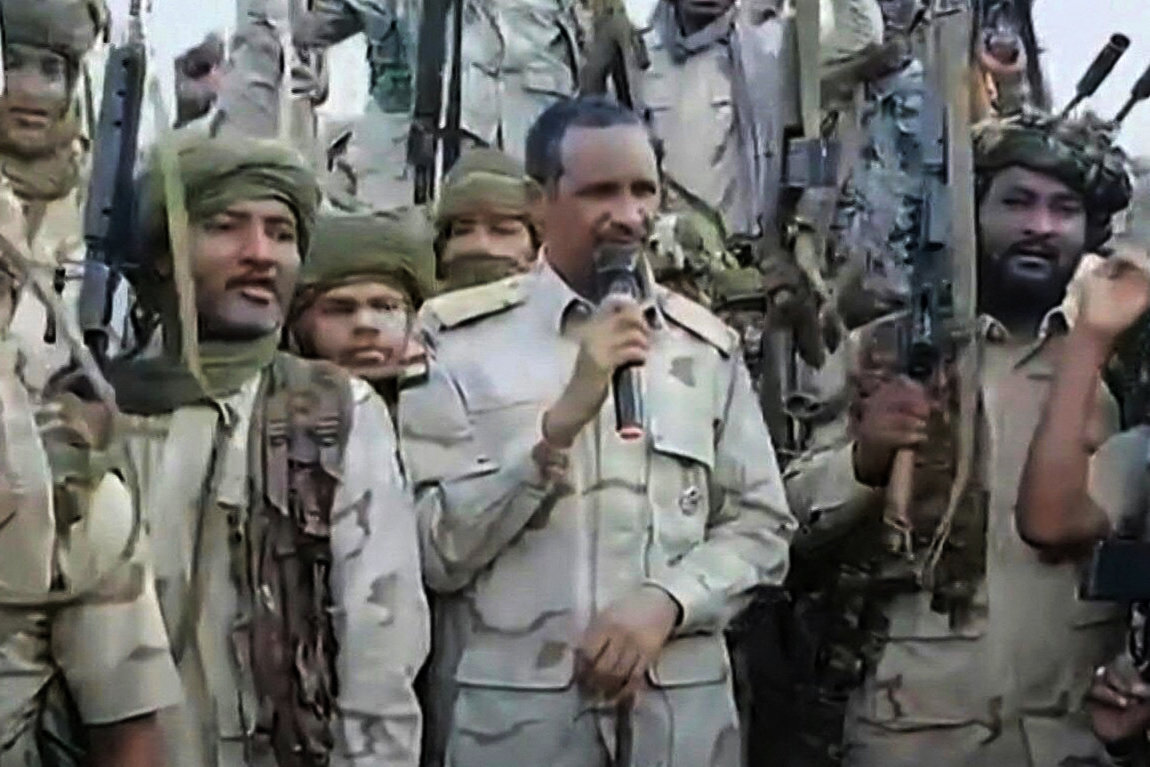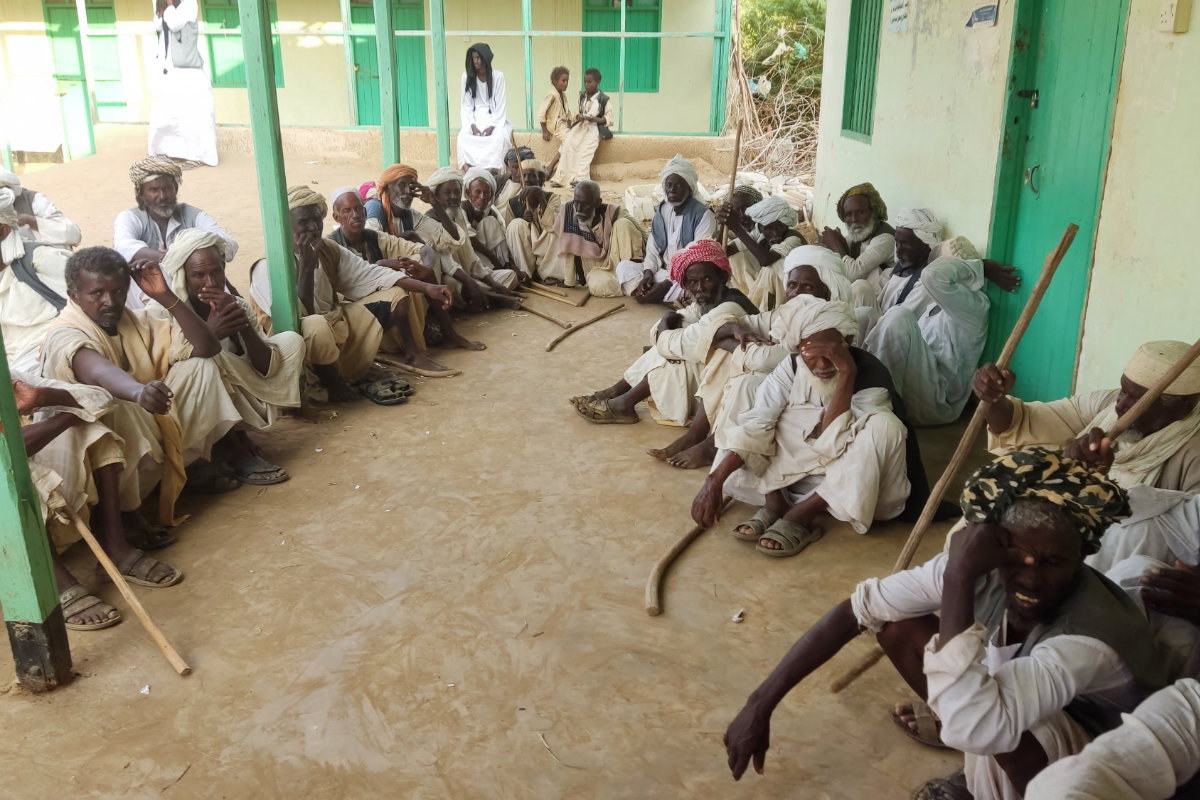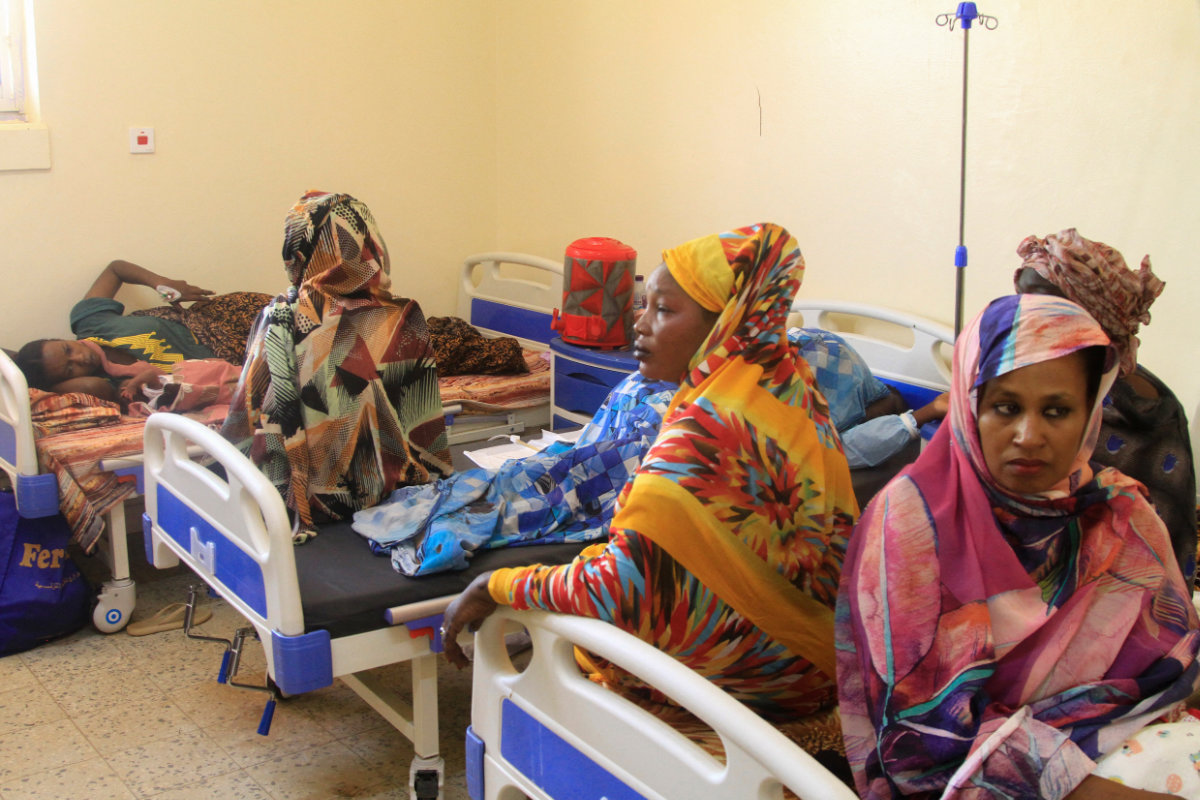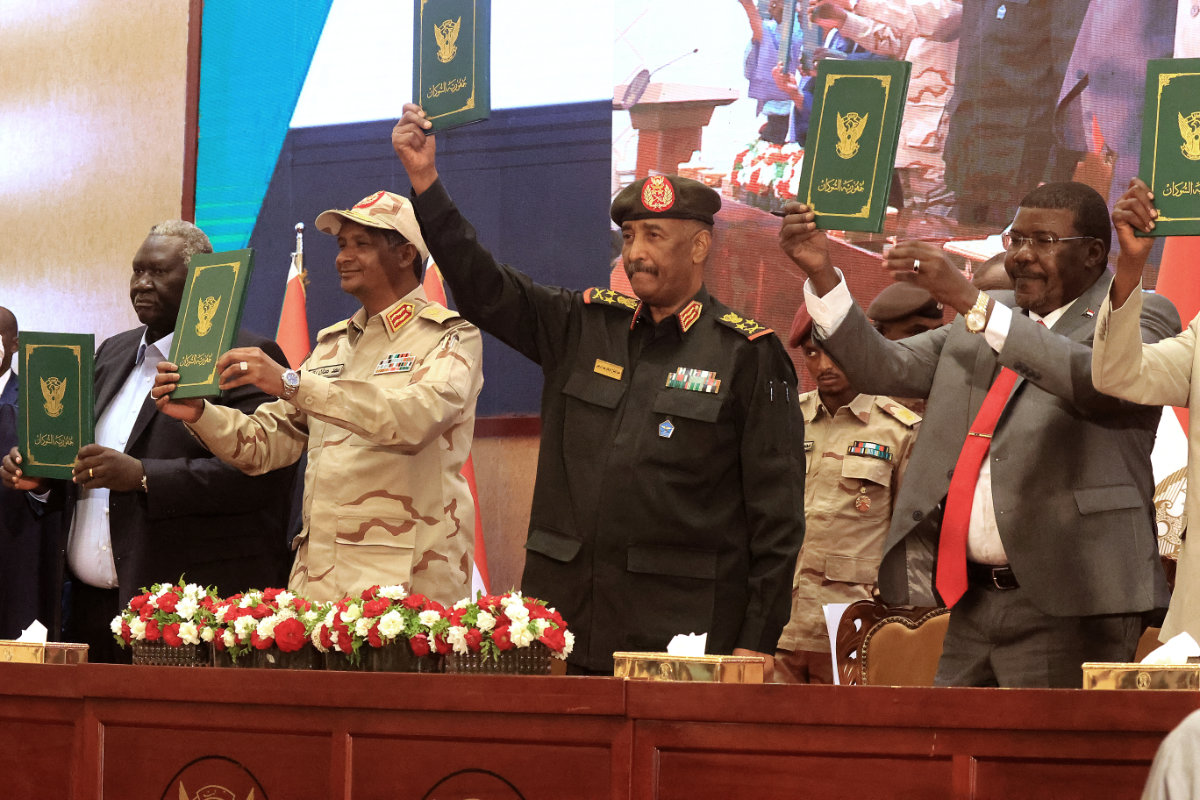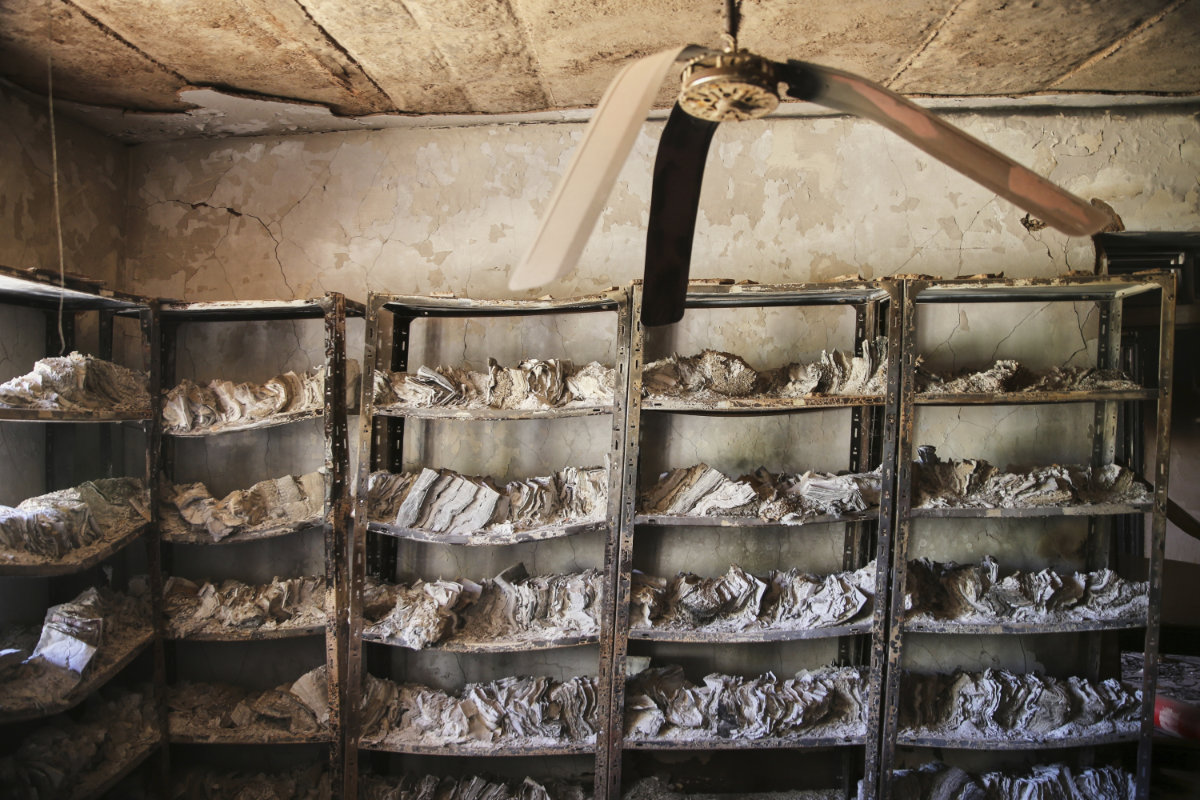WASHINGTON: Israeli Defense Minister Yoav Gallant said on a visit to Washington that his country does not want war in Lebanon but was ready to inflict “massive damage” on Hezbollah if diplomacy fails.
“We do not want war, but we are preparing for every scenario,” Gallant told reporters during the visit that ended Wednesday.“Hezbollah understands very well that we can inflict massive damage in Lebanon if a war is launched,” he said.
Tensions have been rising, with growing skirmishes along the border between Israel and the Iranian-backed militia, since the October 7 attack by Hamas that prompted a relentless Israeli retaliatory campaign in Gaza.
Gallant said that Israel has killed more than 400 Hezbollah “terrorists” in recent months.
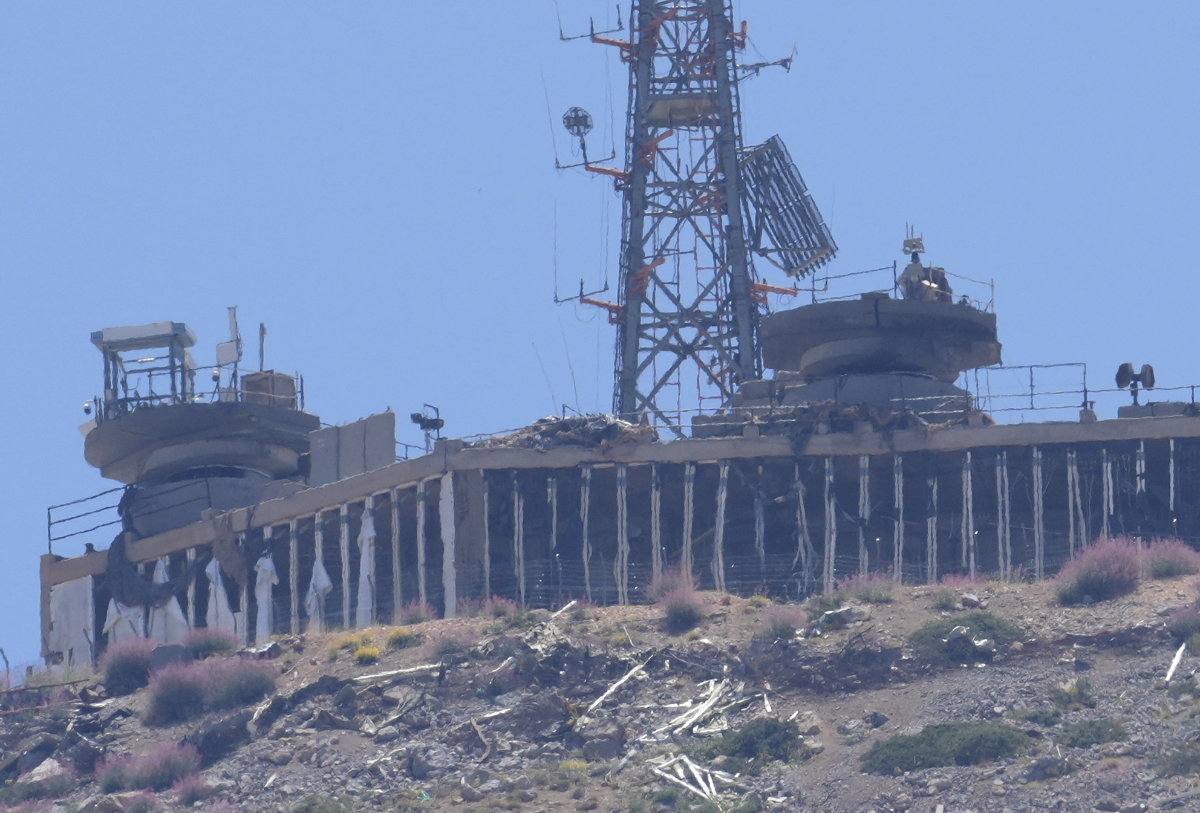
A damaged Israeli military position targeted by Hezbollah fighters is seen on the top of Mount Hermon in the Israeli-controlled Golan Heights, where the borders between Israel, Syria and Lebanon meet. (AP Photo)
The Israeli defense minister was in Washington for three days meeting with officials in a bid to quietly resolve a rift over US weapons shipments, drawing an implicit contrast to Prime Minister Benjamin Netanyahu’s more confrontational approach.
“During the meetings we made significant progress, obstacles were removed and bottlenecks were addressed,” Gallant said after meeting with Jake Sullivan, Biden’s national security adviser.
Gallant said the progress was on “a variety of issues” including “the topic of force build-up and munition supply that we must bring to the state of Israel.”
“I would like to thank the US administration and the American public for their enduring support for the state of Israel,” he said.
Netanyahu in recent days has publicly accused the Biden administration of slowing down weapons deliveries to Israel, which has been at war in Gaza since an October 7 attack by Hamas.
US officials have denied the accusations and showed annoyance, months before an election in which Biden’s support for Israel has become a liability with a left flank of his Democratic Party outraged by the heavy death toll among Palestinian civilians.
The US in early May froze a shipment that included 2,000-pound bombs and Biden warned of a further halt as he pressed Israel not to carry out a wide-scale military assault of Rafah, the southern Gaza city where more than one million displaced Palestinians had sought shelter.
A senior US administration official said the United States has sent more than $6.5 billion in weapons to Israel since October 7, with nearly $3 billion alone in May.
“This is a massive, massive undertaking and nothing is paused other than one shipment,” the official told reporters on condition of anonymity.
The official blamed the rift on misunderstandings of the “complex” US bureaucratic process. He said Gallant’s team and US experts went through “every single case.”
“There was real progress and a mutual understanding of where things stand, of prioritization of certain cases over others, so that we can make sure that we are moving things in ways that meet the needs of the Israelis,” he said.
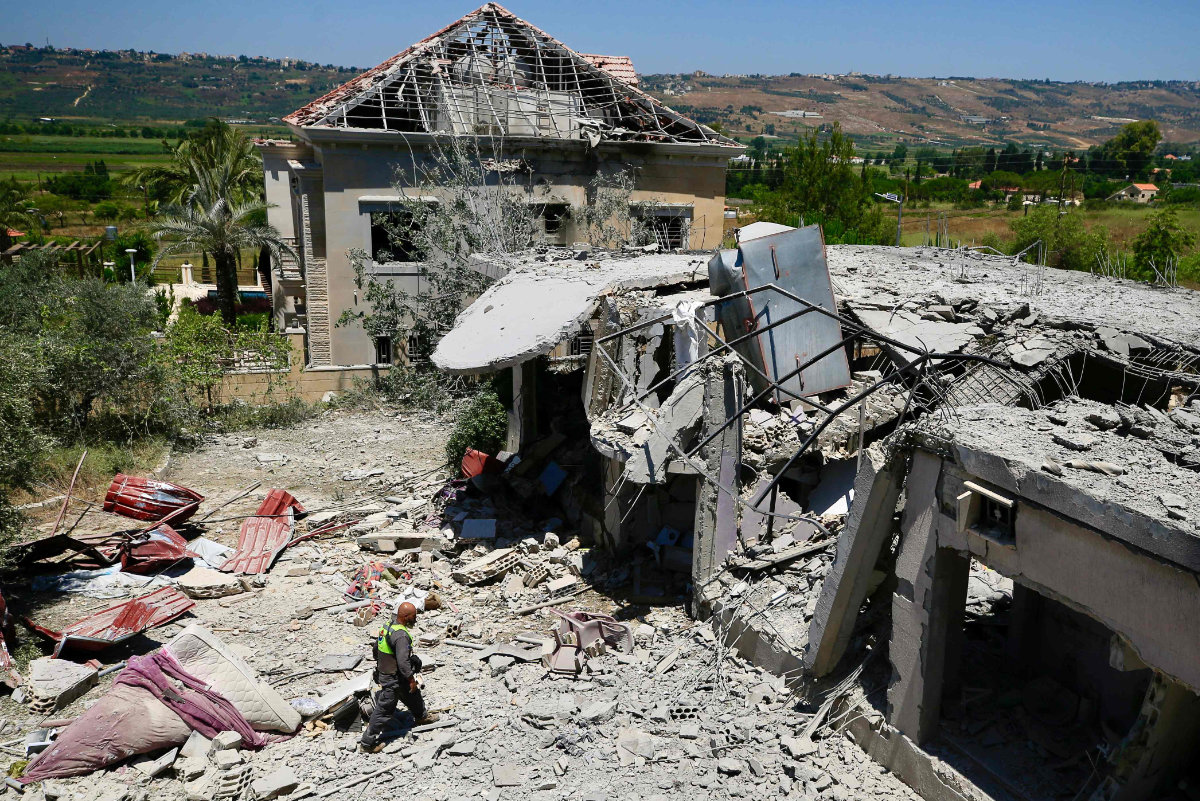
A Lebanese civil defense member inspects the site of an Israeli airstrike on the southern village of Khiam near the Lebanese border with northern Israeli on June 26, 2024. (AFP)
Biden — whose approach to Israel has drawn criticism both from progressives and the right — held off on curbing weapon deliveries after Israel carried out what US officials described as comparatively targeted operations in Rafah.
Netanyahu and Gallant have said the most intense phase of the fighting is over — with Israel set to shift forces toward the border with Lebanon after rising skirmishes with the Iranian-backed militant movement Hezbollah.
The US official said Washington remained in “fairly intensive conversations” with Israel, Lebanon and other actors and believed that no side sought a “major escalation.”
Gallant, who met twice in Washington with Amos Hochstein, the US pointman between Israel and Lebanon, reassured that his country was trying to avoid an all-out war with the Iran-backed Hezbolla militia of Lebanon.
“We do not want war, but we are preparing for every scenario,” Gallant told reporters.
US officials including Secretary of State Antony Blinken have voiced hope that a ceasefire in Gaza could lead to a reduction in tension over Lebanon as well.
Biden on May 31 laid out a plan for a temporary ceasefire and release of hostages, but Hamas came back with further demands.
Despite criticism of the proposal from some of Netanyahu’s far-right allies, Gallant said, “We are all committed to and firmly backing the president’s deal.”
“Hamas must accept it or bear the consequences,” he said.
The Gaza war began with Hamas’s October 7 attack on southern Israel that resulted in the deaths of 1,195 people, mostly civilians, according to an AFP tally based on Israeli figures.
The militants also seized about 250 hostages, 116 of whom remain in Gaza, although the army says 42 are dead.
Israel’s retaliatory offensive has killed at least 37,718 people, also mostly civilians, according to data from Hamas-run Gaza’s health ministry.


